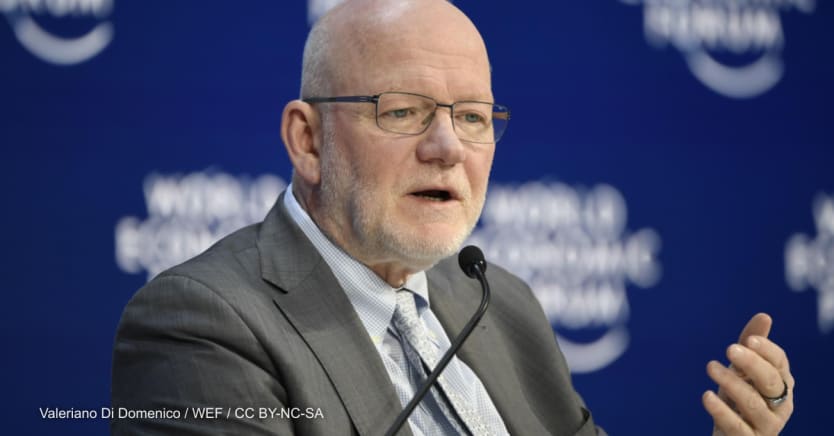Gates gives record $922M for nutrition, urges others to 'step up'

The Bill & Melinda Gates Foundation has pledged $922 million to address global nutrition over the next five years — the largest contribution the organization has ever made to the issue — Melinda French Gates announced Thursday at the United Nations Food Systems Summit.
The Gates Foundation said it is hopeful that its donation will push other philanthropies, governments, and individual donors to make “bold commitments” to reduce malnutrition levels that have risen since the start of the pandemic. Specifically, it is encouraging others to make similar pledges ahead of the Tokyo Nutrition for Growth Summit in December.
“Nutrition is fundamental to better health, and to an equitable COVID recovery. Yet, both malnutrition rates and aid levels are moving in the wrong direction,” French Gates said in a statement.
Bill Gates also said that while malnutrition accounts for nearly half of all child deaths, it receives less than one percent of foreign aid, which is “a trend that must change.”
More than $4 billion was pledged for new nutrition-specific projects and $19 billion for nutrition-sensitive projects during the first Nutrition for Growth Summit in 2013. Another $3.4 billion was pledged at the 2017 Global Nutrition Summit.
“You can’t achieve ... any of those health goals without strong nutrition. Nutrition is often the underlying cause of morbidity and mortality.”
— Dr. Christopher Elias, president of the global development program, Bill & Melinda Gates FoundationIt is not yet known if those commitments will be renewed this year. Meanwhile, recently published U.N. data shows that COVID-19 has increased global hunger and undermined efforts to reduce malnutrition.
The Gates Foundation is urging funders to make both immediate and long-term investments in nutrition, food systems, and health systems to respond to the pandemic’s impacts. The pandemic threatens to stall progress on nutrition by a decade or more, the foundation warned in a statement. And unaddressed malnutrition could cost the global economy as much as $3.5 trillion per year, the foundation added.
In recent weeks, Gates Foundation leaders have expressed concerns about the ways that the pandemic has reversed years of effort to achieve the Sustainable Development Goals.
Dr. Christopher Elias, president of the global development program at the Gates Foundation, noted that there were just nine years left to meet the 2030 SDGs and that nutrition was a driver of every global goal.
“Because you can’t achieve the maternal health goals of the SDGs or the child health goals or any of those health goals without strong nutrition,” Elias told Devex. “Nutrition is often the underlying cause of morbidity and mortality.”
Globally, 13.6 million more children under 5 may become underweight for their height within the next three years, the foundation said, citing data on COVID-19’s effects on nutrition and mortality rates in low- and middle-income countries.
The trend of increased malnourishment is getting worse, and the issue is not receiving adequate development assistance, Elias said. He said that’s why the foundation wanted French Gates to announce its commitment at Thursday’s Food Systems Summit.
“And so we’re hoping that by stepping up with our largest commitment ever, we can also encourage others, if you will, to step up,” he said, adding that “having a strong nutritional component” would help accelerate the global recovery from COVID-19 and the toll it’s taken on the SDGs.
The Gates Foundation said its $922 million pledge would be used to help ensure it meets some of its core organization goals, including helping women and children lead “healthy and productive lives.” It previously committed to spending $776 million over six years at the 2015 European Development Days conference in Brussels.
Currently, the Gates Foundation has four portfolios to address nutrition. They include fortifying commonly consumed foods with vitamins and minerals; nutritious food systems; maternal, infant, and young child nutrition; and research and innovation to identify new approaches and interventions.
Elias said he expects much of the new funding to focus on South Asia and sub-saharan Africa where nutrition needs were among the greatest worldwide. He also said the foundation plans to work closely with the food industry on the large-scale fortification of staple foods such as rice and working with national governments on regulatory frameworks for food fortification to help ensure the foods could be distributed broadly.
Search for articles
Most Read
- 1
- 2
- 3
- 4
- 5








